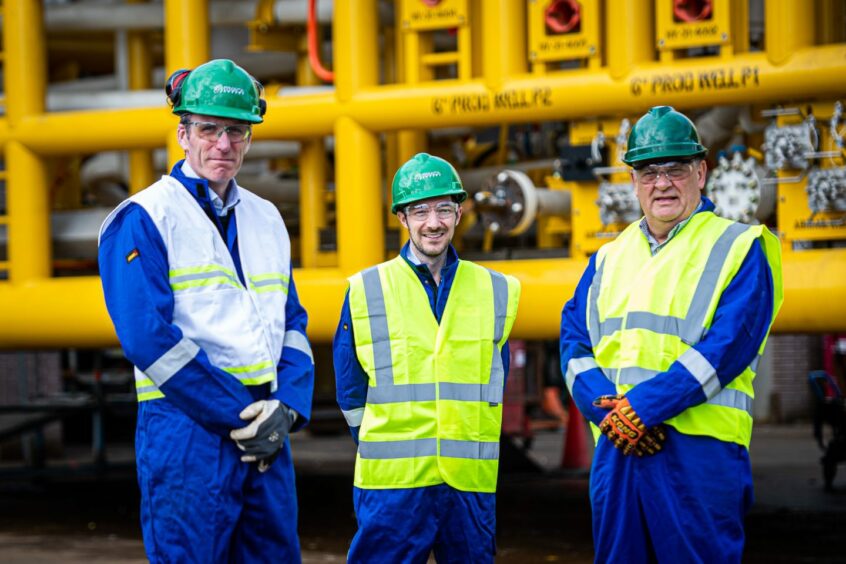
Energy Voice takes an exclusive behind-the-scenes look at work on Ithaca’s Captain Phase 2 enhanced oil recovery (EOR) project as key components await sailaway.
Out in the North Sea, and at yards in Aberdeen and Nigg, work on Ithaca Energy’s £400 million Captain EOR Phase 2 project is taking shape.
“We’re at a stage now where the fabrication and offshore activity levels are going to ramp up significantly this year,” Ithaca’s asset manager Ken Barclay tells EV at Global Energy Group’s Aberdeen yard.
From the Nord Centre facility at the harbour there’s evidence of several Ithaca projects underway, with components for the Captain EOR Phase 2 and the Abigail project both due to be shipped out soon.
The enhanced oil recovery project for Captain is aimed at unlocking an extra 40 million recoverable barrels from the field, 90 miles east of Aberdeen, using an innovative polymer flood method.
Ithaca took a final investment decision a year ago, following a successful first phase, to boost resources from the billion-barrel field which came on-stream back in 1997.
There’s been a raft of activity already this year. Barclay rattles off a list of components, from riser winch and access platforms to laydown platforms for the topsides, which have already been installed and, crucially, fabricated locally.
At Global’s yard at Nigg, there’s currently a 220-tonne riser caisson being fabricated, along with other components, all due to be shipped out towards the end of August into September for offshore installation.
Meanwhile the first batch of components are now arriving from Europe and Malaysia into Aberdeen from contractor OneSubsea.
“This year it’s about seeing some of the pre-assembled units that you’ve seen offshore, fitting them out as much as possible onshore, so we minimise the hook-up and commissioning offshore,” explains Barclay.
Once some of the key activities on that front are completed, the COSL Pioneer rig will have work at Captain in both 2022 and 2023, next year drilling six new wells for polymer injection, and with it delivering first oil for the EOR Phase 2.
Sustaining the North Sea
Though this was sanctioned over a year ago, it’s now coming to fruition at a time when the UK Government seeks extra barrels from the North Sea to cut reliance on Russian hydrocarbons.
That illustrates a point for Ithaca CEO Alan Bruce: bringing on new North projects like Captain Phase 2 takes time, and needs a stable, investible regime.
“This is a really long-cycle business. The things we’re looking at today, we started working on those years ago, and the things that we’re starting to initiate now are not going to come into production until middle or later in the decade,” says Bruce.
“So it’s great that the sentiment is a bit more positive just now but we need to take a long-term view. We need sustainability in terms of the environment and we need confidence that’s not going to change.
“We wouldn’t want to make an investment now if we didn’t think we could be confident that things were going to be the same in years to come when we actually bring it into production.”
Ithaca is 85% owner and operator of the Captain EOR Phase 2 project, partnered with Dana Petroleum.
EOR involves adding polymers to water to make it thicker and – once introduced to the reservoir — more effective at sweeping oil towards production wells.
The investment came after phase one, sanctioned by previous owner Chevron, gave Ithaca “confidence” to proceed with the next stage.
Bruce says the firm is continuing to optimise that process through lab tests and analysis of field performance to ensure the scheme is efficient as possible.
Overall, Ithaca estimates the Captain EOR Phase 2 construction is creating work for hundreds of people across the supply chain.
The firm has assembled a steering group of its key contractors working on the project: Worley doing engineering, Petrofac for construction, TechnipFMC for subsea and COSL doing the drilling.
That’s to ensure the right contracts are in place and so that all parties are working together to meet targets set by the others.
Brian Winton, general manager for projects and decommissioning, explains: “There’s no point in someone winning and someone else losing, we’re all in this together. We’ve been really key in keeping that steering team together.”
Beyond the positive optics of having local fabrication at Aberdeen and Nigg, there’s some very practical benefits too for an operator seeking to work closely with their teams.
Winton adds: “Keeping as much locally as possible gives us the opportunity to be involved in the decision-making as we go through it.
“As issues crop up we’re on hand – 10 minutes in the car and you’re down here. So you can see on a day-to-day basis what’s going’s on.”

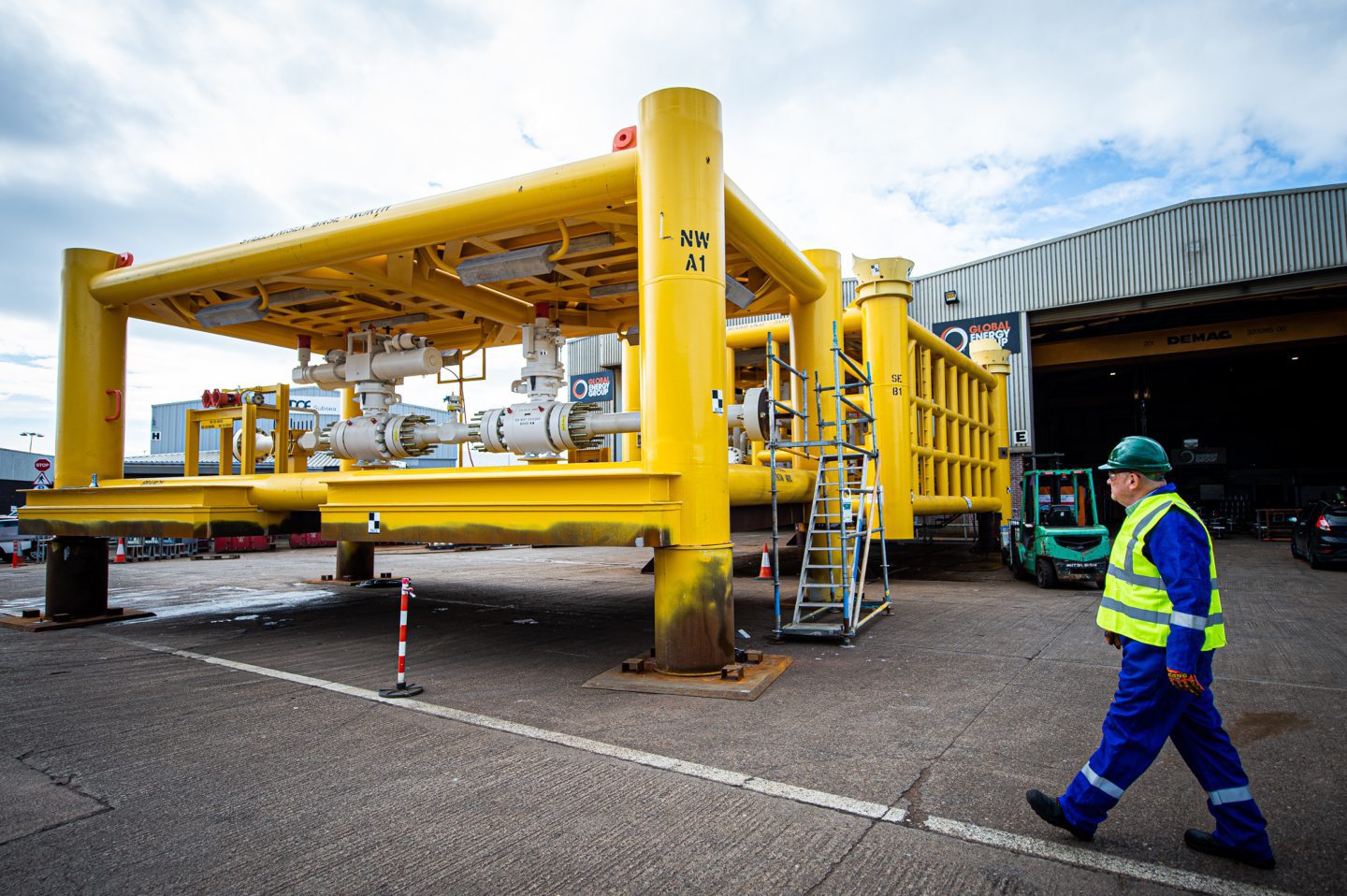 © DC Thomson/ Wullie Marr
© DC Thomson/ Wullie Marr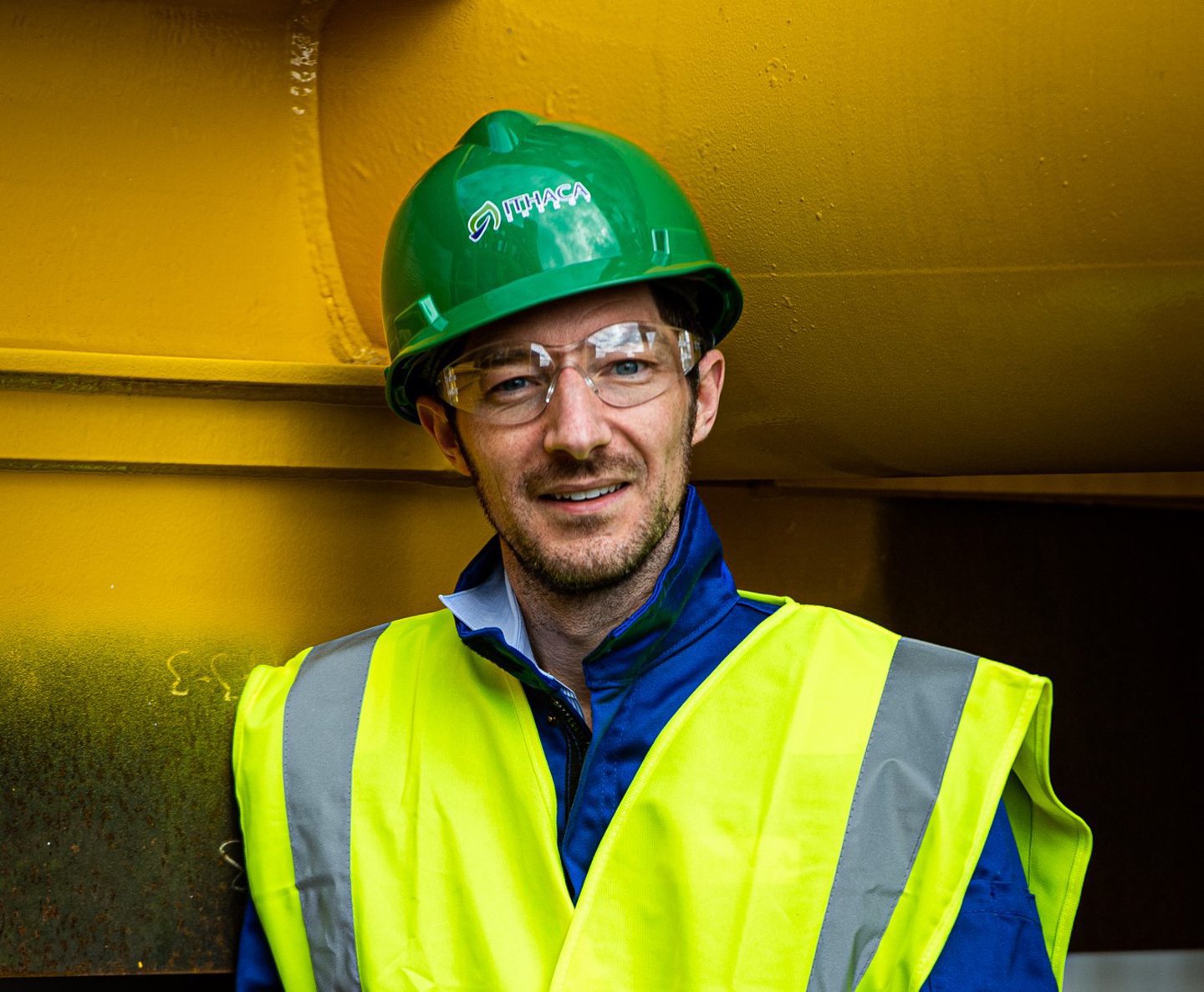 © Supplied by DCT Media/ Wullie Ma
© Supplied by DCT Media/ Wullie Ma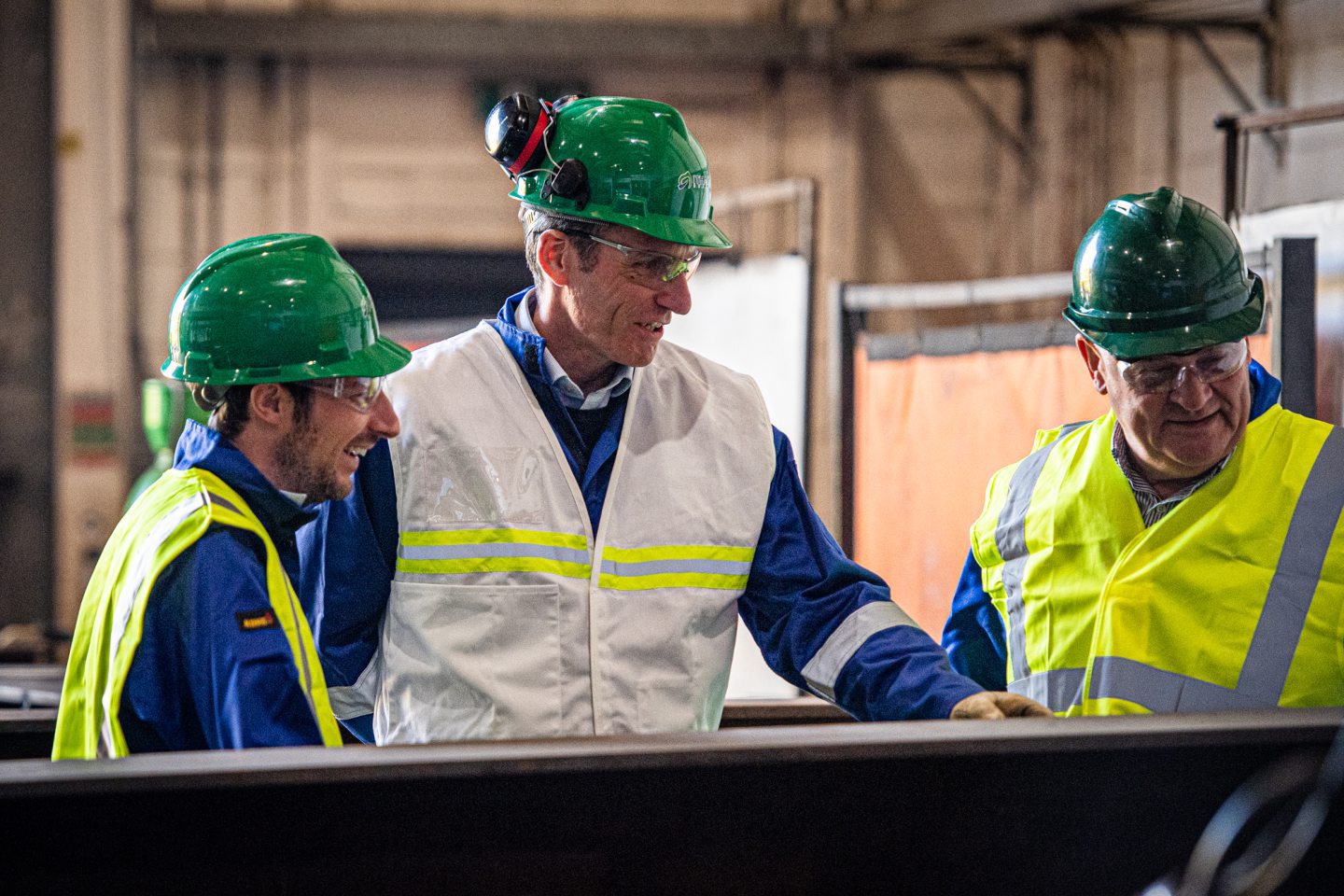 © Wullie Marr/ DC Thomson
© Wullie Marr/ DC Thomson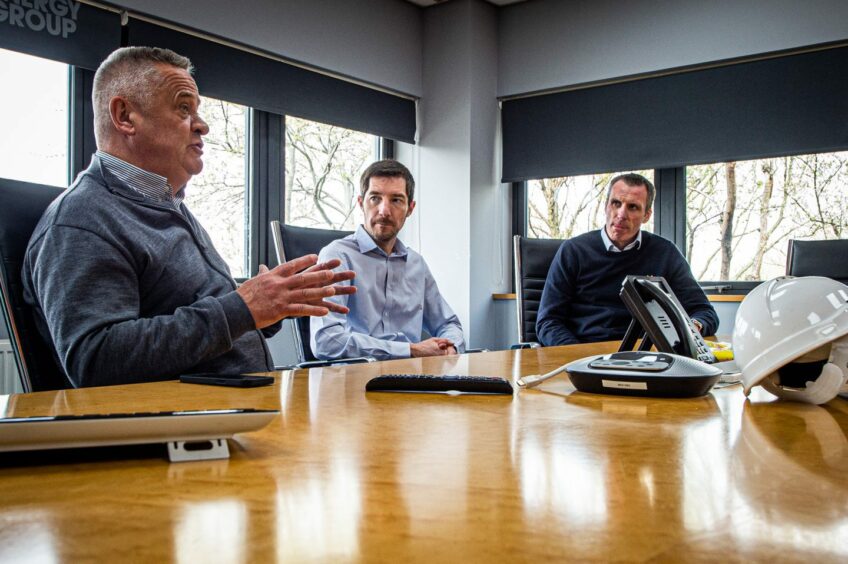 © DC Thomson/ Wullie Marr
© DC Thomson/ Wullie Marr